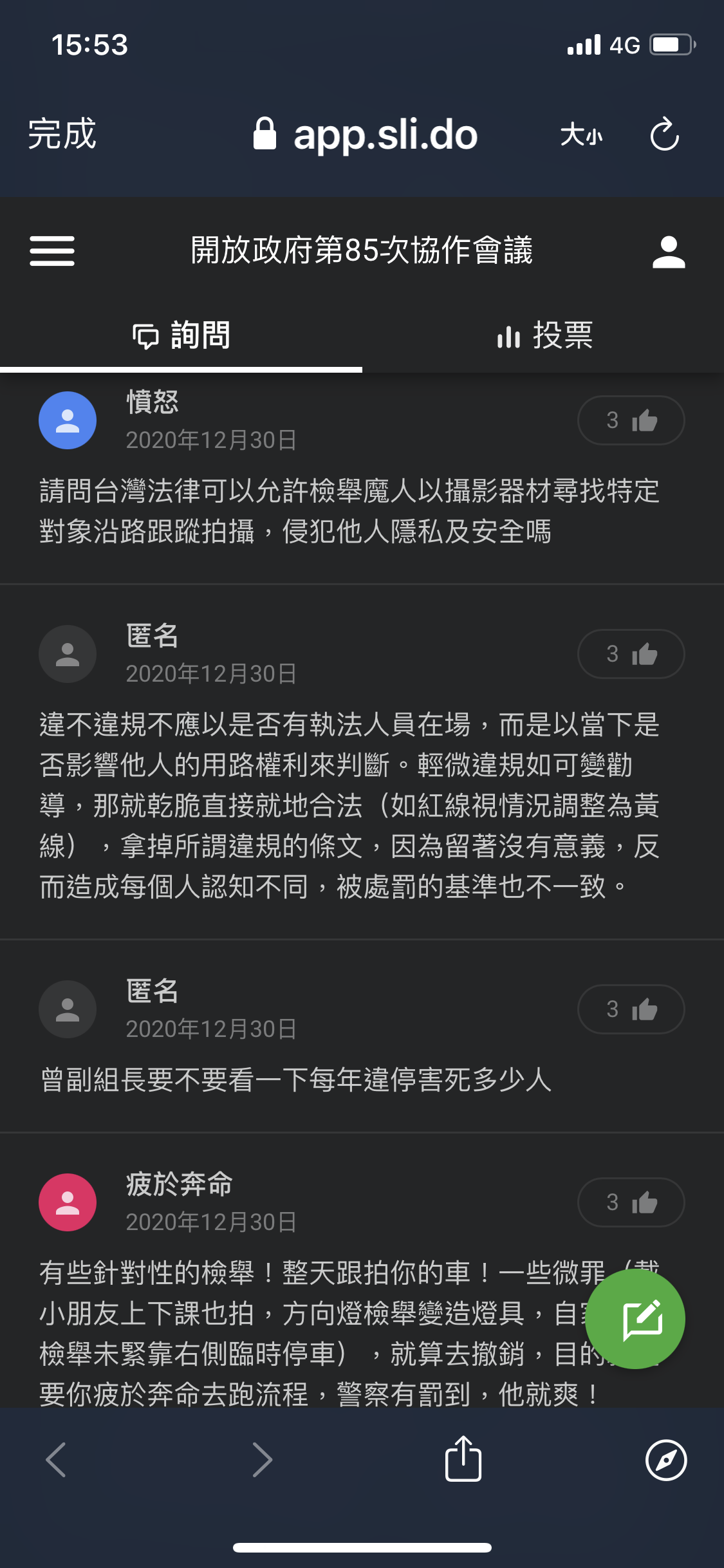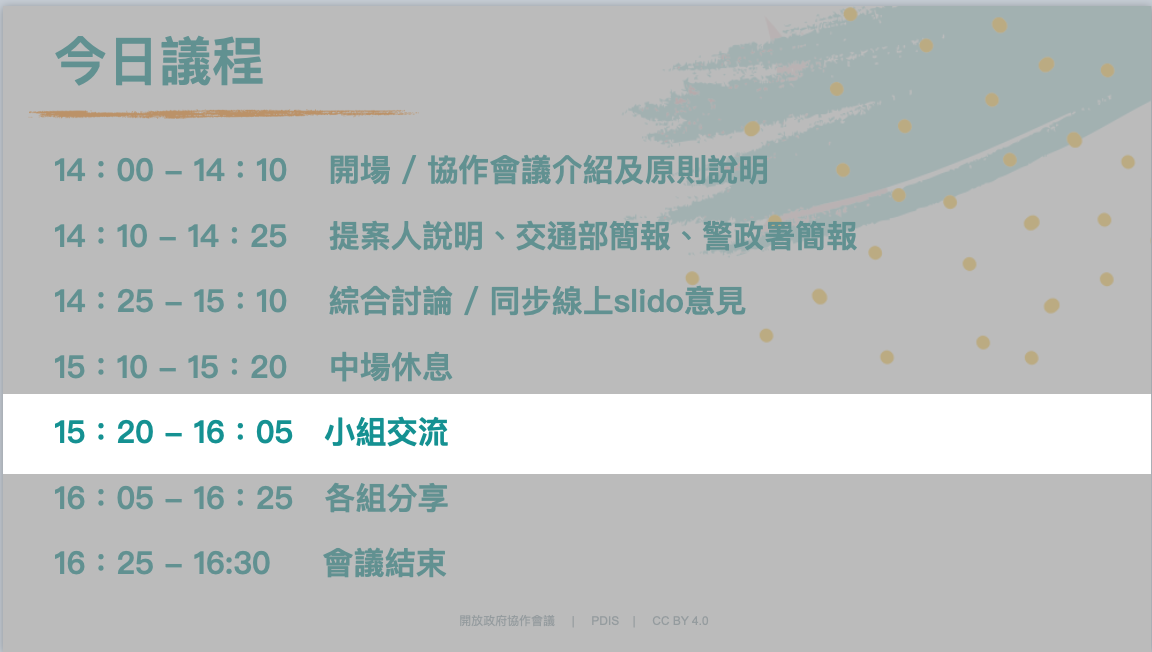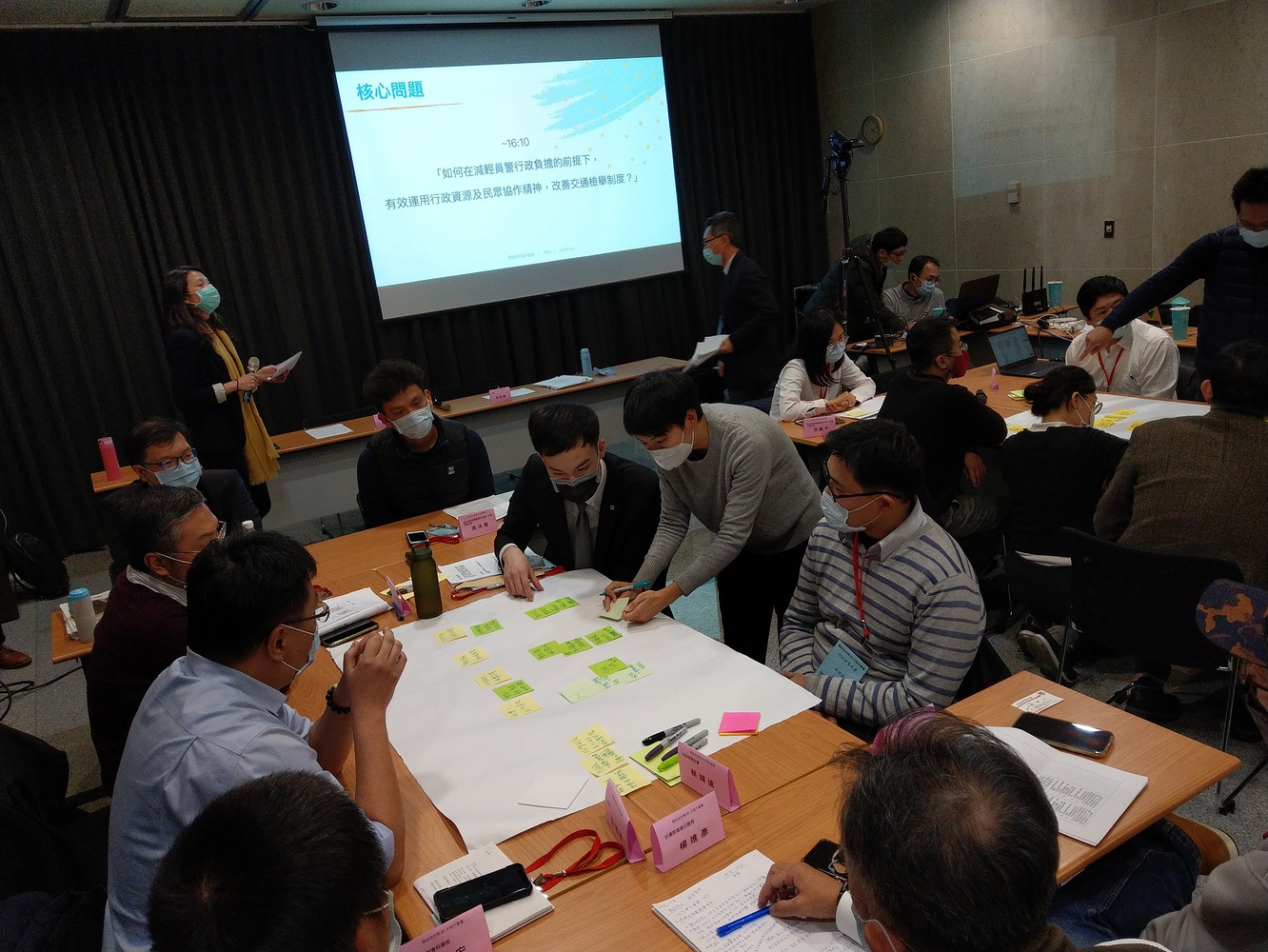Innovative conference design, a briefing on draft regulations with temperature
Create a new round for the public to report traffic violations and not fall into the battlefield of mutual labeling of "warriors".
Have you ever been reported for traffic violations? Still can't understand the violations and have reported others?
When you hear labels like "reporting the demon" or "violating the demon", you may be familiar with it. The issue of public reporting of traffic cases has been heatedly discussed on the Internet or in newspapers and media in recent years, and the accumulated emotions of the informant and the accused continue to ferment. It is not only the Ministry of Transport and the Police Department, but in response to public opinion to review and amend the law. The netizen Mr. Guo made a proposal on the public policy network to participate in the platform "abolishing the public to report traffic violations." In just 17 days, 8,637 netizens signed a response. This is the 85th collaborative meeting that has just been completed, the discussion on the system of "Public Reporting of Traffic Violations", one of Article 7 of the "Road Traffic Management Punishment Regulations".

The people's proposal and the law revision discussion took place simultaneously, which kicked off the conference. Over time, the open government collaboration meeting promoted by PDIS is not limited to a specific format (Please refer to the Collaboration Meeting Teaching Guide p.30-p.42), PDIS The host team is often referred to as "full-fit" or "lightweight". We try to "adjust to the case" to develop different discussion methods for meetings of different formats and topics. It is not the first time that PDIS has assisted administrative agencies in organizing an explanatory meeting on regulations and advance notices; the difference is that this time we have designed an agenda to include a "group discussion" in the 2.5-hour draft amendment explanatory meeting.

Legal discussion and face-to-face exchange of experience will make the rigid regulations more "humane"
If you have participated in the administrative agency's legal briefing or public hearing Yes, you will know that it was a two-hour meeting, and the competent authority will guide participants to discuss the regulations one by one. Compared with the traditional briefing session, PDIS assists the organizer to maintain a "lightweight" approach, but will increase the "Interview with Stakeholders" link in the "topic research stage" to contain more diverse opinions. At the meeting site, use the online message tool slido or arrange a live broadcast method to extend the time and space constraints of public participation and "expand participation" as much as possible.
However, the most inexplicable part of the legal explanation is the gap between the rigid laws and the people's life experience. Whenever the competent authority asks participants for suggestions for amendments to laws, or for detailed discussions on the articles, there is often silence or various responses that do not respond to the questions. After all, the refined laws are far from the people's personal experience and daily language. In this meeting, we uphold the spirit of policy discussion with "user needs" as the core, and guide the public to "how to effectively use administrative resources and the spirit of public collaboration while reducing the administrative burden on the police and to improve the traffic reporting system?" Speaking freely on this core issue does not need to be restricted by the law. In addition, for the first time, a "group discussion" session was also arranged so that participants from different positions and roles could express their experiences more closely and effectively like "chat" with group members; even for the police on the front line, You can also directly express your own observations and suggestions without being forced to chew words. At the same time, the team leaders will summarize the opinions of the team members and link them to the spiritual concept of the law. As for the legal profession, it is left to the competent authority's Ministry of Transport and the executive authority's police department to discuss and discuss it.

Of course, listening to the needs of the public is not new to today’s public agencies, but all stakeholders are brought together for "face-to-face discussions", and the design is guided through customized meetings. It is not a common practice to promote the focus of discussion without "turning over the table." In addition, PDIS also encourages the Ministry to treat legislators with relevant proposals as stakeholders, interview the other party and even invite members to participate in on-site discussions. PDIS often uses the "face-to-face tripartite" "group discussion" as a model for administrative agencies. It is not so terrible to bring people with opposing positions together to discuss issues. It is also possible to include legislators in meetings and dialogues at the beginning of the draft. Different perspectives, listen to more ideas. Through the "user-centered" meeting design, meeting rhythm and risk management can actually be mastered at a high level, and the quality of public policy discussions can also be gradually improved.
This time the regulation briefing will include "group discussion-face-to-face experience exchange". Not only can the ministry once again understand the diverse needs of the people, the participants also clarified through the discussion that there is no bonus for traffic reporting, The administrative pressure on the police, the improvement and optimization of the reporting process, and the overall consideration of traffic design and other broader issues.
Although the antagonism in the online community will not be resolved overnight, just as public policies and regulations are not carried out in a straight line, but will continue to be reviewed and revised as the time and space environment changes. Many people are willing to continue to engage in "quality dialogue." The design innovation of the 85th Open Government Collaboration Conference once again proves that quality dialogue can make legal discussions more comprehensive, closer to the truth, and more valuable, and promote mutual understanding and cooperation between people.
As expressed by a seconder that day, after such discussions, he finally understood the hardship of the police, and at the same time raised the needs of the people and hoped to be seen.
Secondor Lin Bainian: "I know that this has caused the administrative burden of the police, but if the administrative burden of the police makes the public a large number of bonus orders, I think this actually affects the people. Speaking is also a greater burden."
 (This work is licensed under a Creative Commons Attribution 4.0 International License.)
(This work is licensed under a Creative Commons Attribution 4.0 International License.)